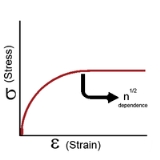encurt
NDE RESIDUAL STRESS - NEW METHOD
Introduction
Internal stresses are to be considered as the following: 1) Operational strains referring to loads that the material is subject and calculated 2) Residual stresses in the material caused by heat treatments or stresses caused by welding, forging, casting, etc. The new technique is able to measure the applied load and residual stress that are balanced on the surface of the material, and in a relatively large volume, at times even the same size as the entire structures. This stress is part of the metal’s elasticity field and has a three axis spatial orientation.
Description
Elastic oscillations (also called vibrations) of an elastic material consisting of elementary masses alternately moving around their respective balance positions; these movements cause a transformation of the potential energy into kinetic energy. This phenomenon takes place due to reactions (elastic forces) that the aforementioned masses produce in opposition to elastic movements; these reactions are proportional according to Hooke’s Law to the same movements. The elastic waves that are produced propagate according to a fixed speed that depends on how rapidly the elemental masses begin to oscillate.
Elastic waves of this type are called “permanently progressive”, and they propagate at a constant speed which is absolutely independent of the speed with which the elemental masses move during the oscillating motion, and therefore also their respective oscillations. It is easy to verify that the elastic oscillations, from a material point P (in which the elemental mass m is supposedly concentrated) are harmonic. In reality, due to the fact that in any moment the elastic force that is applied to P is proportional to the distance x of the point from its position of balance 0, P acceleration (caused by the proportionality between the forces and the corresponding accelerations) is also proportional to x; this is demonstrated in the harmonic movement. The impulse creates in the metallic mass a harmonic oscillation (vibration) which is characterized by a specific frequency ù² and by a width equal to dx (movement of the relative mass). If a constant impulse is produced in the metallic material, the elastic oscillation generated in the P point will also produce a sinusoidal wave with specific width, acceleration, speed and period values.
This wave is longitudinal when the direction of the vibration is equal to the P point movement, or is transversal, and in both cases the values of the results are identical; the only difference is the ¼ delay of the phase.
Impact with the metallic surface results an elastic deformation energy.
Ed = Ei – ( Ek + Ep )
Ei = Impact energy Ek = Kinetic energy
Ed = elastic deformation energy Ep = plastic deformation energy + lost energy
Ed = ½ K dx² = ½ m ω² dx² K = constant elastic material (stiffness)
Behavior elastic metals, due to new discovery
Fig. 1 Fig.2
The system works through the accelerometer mounted with a magnetic base to generate the acceleration value of the vibrations created by the device impacting on the metal surface. The acceleration value, in combination with other parameters, permits obtaining the exact value of the residual stress or load applied in the desired point. This value will appear on the display directly in N / mm ². For non-magnetic metals, wax or gel will be used to mount the accelerometer.
The system doesn’t recognize the compressive from tensile stress.
Fig .3
Quality of surface
The test method requires smooth surfaces free of oxides, paint, lubricants, oil. The indentation deep and the accurately of the test depend from the roughness of the surface. For the preparation of the surface, is necessary, must be careful not to alter the surface over certain values of heating or hardening. More practical results can be realized by using a high-speed grinder (> 12000 rpm).
Conclusion
Application of this type of non-destructive method NDT provides the possibility to measure residual stress and the effect of the service load in a very rapid and simple way on any point of the metallic surface. The testing method requires smooth surfaces free of oxides, paint, lubricants and oil. Precision depends on the roughness of the surface. This technology has demonstrated its validity over years of mechanical experimentation and has confirmed its theoretical basis. The new system provides a full-field, large area inspection, in real time to point-by-point inspection too rapid and easy
About residual stresses
The residual stress in a metal doesn’t depend on its hardness, but from the elasticity module or Young module and from its chemical composition.
The hardness of a metal indicates its ability to absorb elastic or plastic energy, but through it not possible to determine the value of residual stress. In a metal with the same hardness we will have different values of this stress. .
The residual stresses tend to equilibrate themselves in the surface of the material.
The measurement made with all the major methods, X-ray, string gauge (destructive), optical etc. the residual stress is determined between the measuring the displacement of the equilibrium point the reticule crystalline.
The method discovered analyzes the value of frequency and vibratory acceleration generated by an impulse with the subsequent reaction elastic (elastic field) from the metal.
You will realize the convenience of this technique.
1) Portable system easy to use and very swift.
2) NDT non-destructive test.
3) Repeatable in unlimited number of points.
4) All metals type (a-magnetic)
5) Don’t expensive. Effective for welding, hardened treatments, vessels control,
bridges, pipes line, aeronautics, NDT inspection for every metal types.
p.i. Ennio Curto.
More info web site: www.scribd.com/doc/6067883/New-Technique-for-Residual-Stress-Measurement-NDT-


